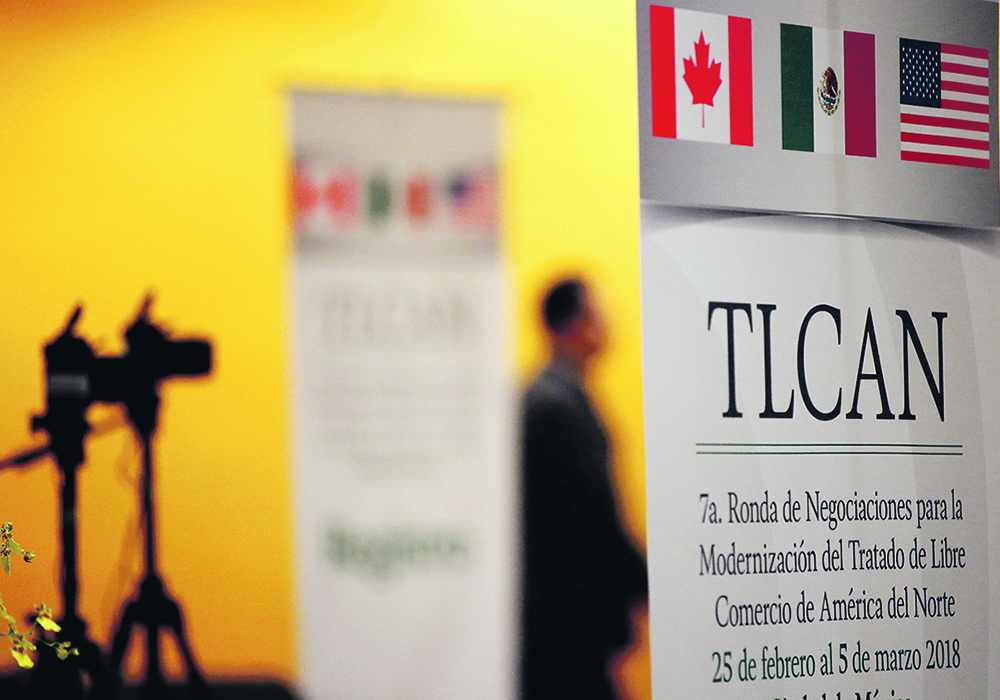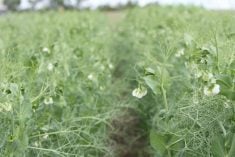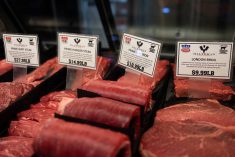Former negotiator says other countries are busy signing deals while the U.S. appears unconcerned about market access
CHARLOTTETOWN, P.E.I. — A former U.S. trade negotiator said the U.S. risks falling further behind if it doesn’t get back to negotiating agreements.
Joseph Glauber said the U.S. has sat on the sidelines for years while its competitors have signed numerous trade deals.
“I think it’s a real mistake,” he told the North American, European Union Agricultural Conference of farm leaders. “When I was a negotiator, I realized how much time it takes to negotiate an agreement. Over a six-year period where very little has been done… you don’t just sit down and say, OK, let’s start over again.”
Read Also

Europe holds promise for Canadian lentils
Pulse Canada is trying to help boost lentil consumption in Europe, which is already the fourth largest market.
Other than renegotiating with Canada and Mexico, the U.S. has only signed a deal with Korea.
Under former President Donald Trump, it imposed tariffs and blocked appointments to the World Trade Organization appellate body, rendering it ineffective.
However, agricultural exports were worth nearly US$200 billion to the U.S. last year, representing about 20 percent of overall production. Trade is important, said Glauber.
American agricultural interests have tried to make the point. In March, more than 50 organizations urged Congress to pass legislation, allowing the country to negotiate more free trade agreements.
Still, President Joe Biden’s administration appears unconcerned about market access, Glauber said.
“I don’t really understand it,” he said. “Right now, being anti-trade is somehow good.”
He views what happened at the WTO as a “tragedy.” When Trump blocked reappointments, members’ terms expired and the body lost quorum. Disputes can still be taken to panels, but appeals cannot be heard.
The lack of an appellate body undermines the dispute settlement system, Glauber said.
“I think you need the U.S. back in the fold,” he said during an interview. “There’s plenty of people in the U.S. who think it is important.”
Some of those people have been involved in behind-the-scenes discussion on improving how the appellate body works.
“A functioning appellate body would bring the WTO back in a big way,” said Glauber.
Trading partners need a forum to resolve trade disputes peacefully, he said, and the next WTO ministerial meeting, in Abu Dhabi in February, would be a good place to resolve the situation.
Glauber said a strong rules-based trading system is important, particularly for developing countries that are becoming larger players in a changed market.
“Over the last 20 years or so, global agricultural trade has tripled in value and even in volume,” he said, adding that price increases have obviously boosted values.
But he said developing countries now account for about 40 percent of trade. China and India in particular have seen rapid growth.
China is the world’s largest importer of agricultural products, surpassing the European Union, and is the third-largest exporter. It accounts for about 60 percent of the world soybean market and the feedgrain market is growing similarly.
Glauber said while developed countries have to increase exports through productivity gains, countries like Brazil are moving new land into production at the loss of their pastures and forest.
The Black Sea region, the recent Russian war on Ukraine notwithstanding, has also become a larger exporter after being a net importer following the breakup of the Soviet Union. As investment moved to the region, yields improved, port facilities developed and wheat exports blossomed.
Shawn Harding, president of the North Carolina Farm Bureau, said the world’s farmers deserve more inclusive trade policy.
“We aren’t just working towards getting bigger countries the best deal but also ensuring that smaller farmers in developing countries receive fair access to the global market,” he said.
That means addressing trade barriers, aligning sustainable practices and mitigating restrictions on biotechnology.
“Biotechnology has been a game-changer on my farm and for agriculture worldwide,” Harding said. “We must work towards ensuring decisions are based only on science.”
He said crops developed using biotechnology have a 35-year food safety track record.
“However, non-scientific trade barriers and tariffs restrict farmers’ ability to compete in global markets and slows the advance of sustainability,” he said.
Harding advocated for open communication and strong, transparent trade agreements that adopt technologies like gene editing.
The vice-president of COPA, the organization representing farmers in the European Union, said they have to operate in the European legal framework.
“We cannot produce GMOs,” Massimiliano Giansanti said through a translator. “We will see over the next few weeks if we will be able to adopt new rules. We’re still lagging behind.”
The Italian farmer said talking about science-based decisions is one thing but many farmers want their markets protected.
“Often our competitors have lower labour costs (and) different chemical use,” he said. “We have a model that is shifting to stricter and stricter standards to guarantee food safety, but in some parts of the world this is not the case.”
Soy Canada executive director Brian Innes asked how the sector can deal with what he called new protectionism. He described that as governments “protecting” society from technology that farmers could use.
“How can we contribute to that conversation about new protectionism that’s preventing new technologies that produce better food, higher quality food and lower our environmental footprint?” he asked.
Giansanti observed international norms are needed. As production-based rules become stricter, European exports will be lower, he said.
















